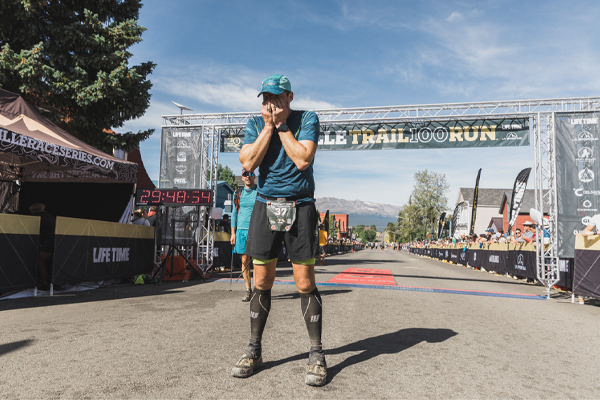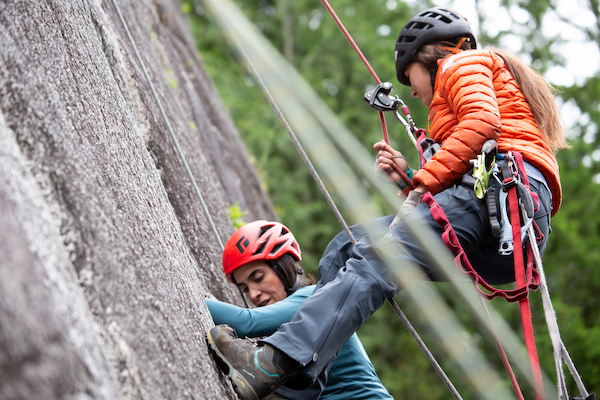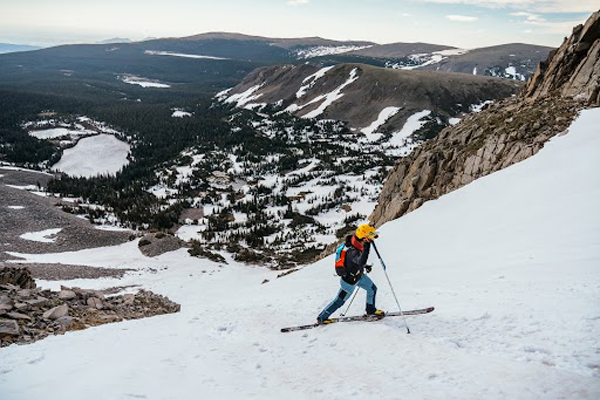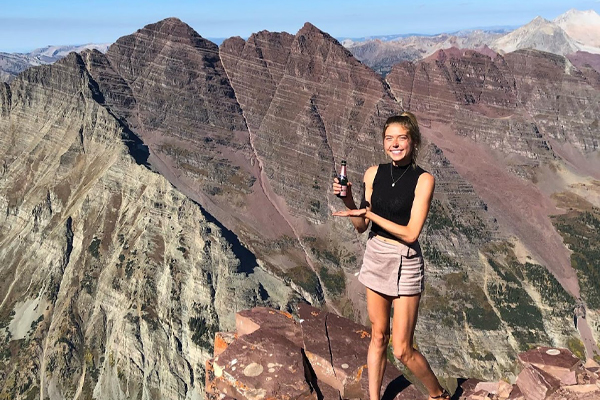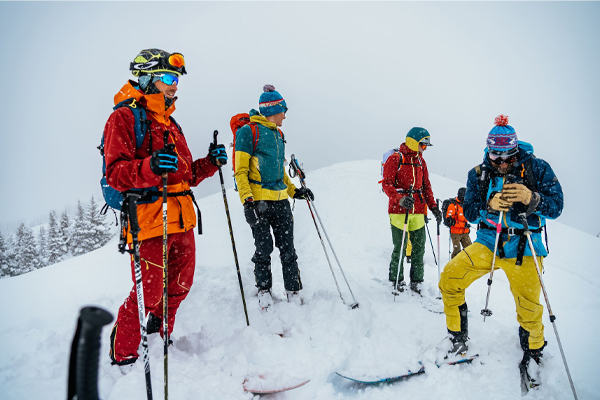Racing Through the Night: What to Expect

Sun down, head lamps on! We asked two ultra-vets about the challenges of running through the night...
- - -
Running an ultra takes a long time.. With cut-off times for 100+ mile races often between 30 hours and two days, it’s par for the course to spend a large portion of that time running during the night. And while the darkness can offer relief from the sun, it also presents its own challenges. Here’s what La Sportiva mountain runners and former Leadville 100 winners Clare Gallagher and Anton Krupicka had to say about racing “lights out:”

"The transition from daylight into nighttime is one of my favorite things in mountain sports." - Anton Krupicka.
Photo: © Fred Marmsater
What are the physical challenges of racing "lights out?" Mental challenges?
CG: Physically, racing in the dark comes down to staying alert. I sprained my ankle early on in the Lavaredo Ultra, at about 1am, just 10 miles into the race, because I let my mind wander and became complacent on a relatively smooth section of downhill. But, that section of trail had small rocks and dead leaves that were difficult to discern. I should have slowed down and paid more attention. Anyone can get through a night of racing. You just have to be diligent with your mind and with your vision. Remind yourself that the sun will eventually rise!
AK: Racing at night requires you to be more alert in order to maintain the same pace. On smooth and/or uphill trails, you don't really lose any time when compared to running in the daylight, but technical, downhill trails at night are almost unavoidably slower. Even with bright lights, there isn't the same ability to anticipate the trail ahead, peripheral vision is similarly dimmed, and odd shadows can drastically affect your speed over technical footing. Mentally, I find running at night almost easier. Your surroundings are generally reduced to your small globe of headlamp light, which I find helps to keep me present in the moment and not be overwhelmed by the enormity of the task. However, everyone's circadian rhythm tends to induce a bit of a lull from 2-5am, and those hours can be tough. I have to remind myself to remain engaged—it becomes easy to zone out and either slow down unnecessarily or make a mistake and trip, or roll an ankle.

Anton Krupicka with pacer and friend Alex Nichols at Turquoise Lake (mile 93) at the 2006 Leadville 100. (Photo provided by Anton Krupicka.)
Have you ever purposefully done training runs at night before a long race?
CG: I wish I was disciplined enough to do a training run through the night! So no, I have never done that. I love sleep just too much. I have, however, purposefully done shorter runs in the dark to practice running slowly at night, like I am in a race. Even just a few of these runs will bring much needed confidence come race day, err race night.

Moments after Clare Gallager crossed the finish line as the top female at the Leadville 100 in 2016. Her first 100-mile race resulted in setting the second fastest women's time for the course in 19:00:27. Photo: © Ryan Lassen
AK: I have not. I like sleep. Purposely training at night seems a bit masochistic. I've done plenty of training runs that have necessitated headlamps, but it's never been with the express purpose of practicing running in the dark. Also, it's pretty intuitive; there aren't really any secrets. Inevitably, though, alpine starts for climbing and skiing and shorter daylight hours in the winter end up sprinkling plenty of nighttime mountain activity into my regular routine.
What have your experiences been with staying on course, staying motivated (staying awake at aids), and malfunctioning gear while running at night?
CG: Always have a backup headlamp battery and/or headlamp. In 2016 at the Leadville 100, my headlamp went out less than a mile into the race. I'm not kidding. It was a rookie mistake to not triple check that my headlamp was fully charged. Another rookie mistake that I didn't carry extra batteries. So, there I was running out of the town of Leadville, onto the Turquoise Lake trail section, straining to see from the beams of other headlamps. Then Maggie Walsh, the woman's eventual 2nd place finisher, gave me her spare! A life-saver moment. I've learned since then that races are strict about having extra batteries and extra headlamps because you are kinda SOL without light. Don't make this mistake. Be prepared.
AK: I've experienced all of the problems. At the 2015 Transgrancanaria 125K I repeatedly missed course markings and added extra distance to my race multiple times during the night. This was due to simple inattention and visibility problems that wouldn't have been issues during the daytime. During UTMB 2014, my secondary light (the one I wear around my waist) stopped working for no apparent reason—the batteries were fresh. This wouldn't have been too much of an issue except that the high passes were very foggy and having a light only on your head in thick fog is not very effective. I've never really struggled too much with motivation at night, other than the usual doldrums from 2-5am.
How have you felt in previous races when the sun starts to dip? Relieved? Anxious? Afraid? Sleepy? Exited? Re: When the sun starts to rise?
CG: Sunrise and sunset are spiritual moments for me. It's the Earth spinning, metaphorically turning her shoulders in for some hours of darkness. I try to think of the Earth still spinning when it gets dark. It's not about sleep or rest, but about a new phase. If you think outside standard human patterns, you'll be surprised at the celestial energy you can summon. Just accept that it will be dark and then, sun willing, it will be light again. The colors of sunrise and sunset give me an extra boost. Take that energy in!
AK: The transition from daylight into nighttime is one of my favorite things in mountain sports. The world seems to get calm and quiet and the temperature inevitably drops a bit—all of these things are generally beneficial to endurance activities. Additionally, there is an undeniable adventure factor that comes from running into the night, and adventure always makes me excited. Of course, the dark eventually becomes a burden, though—every human I know is excited to see the sun rise after a long night and I am no exception.

Anton Krupicka catching a sunrise in the Tetons. Photo: © Fred Marmsater
Preview Photo: © Mikey Schaefer




